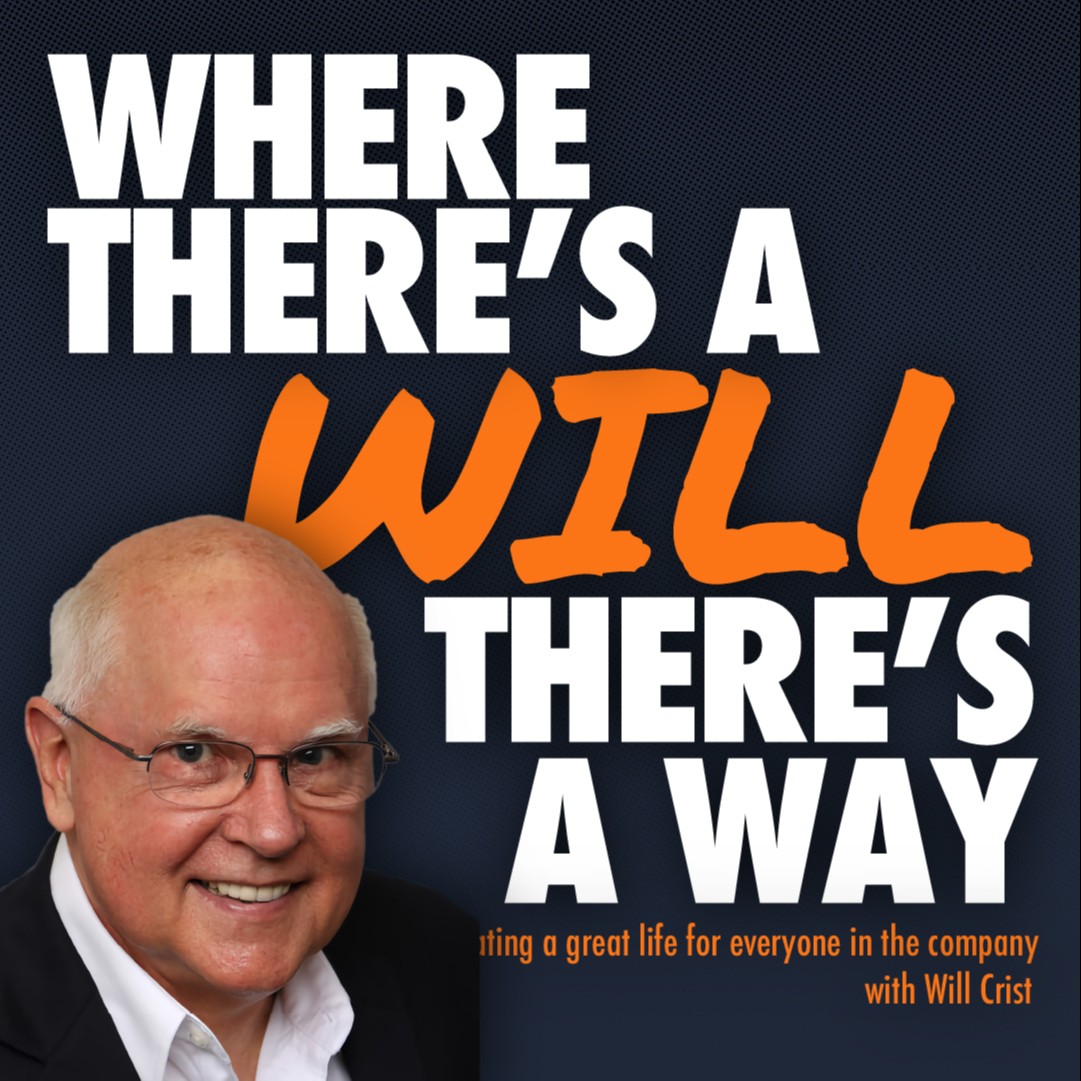
23.3K
Downloads
287
Episodes
Are you ready to give yourself, your leaders, and every employee the opportunity to live the ideal life? In this conversation, you will hear how Entrepreneurs and their leadership teams are creating the possibility for everyone in the organization to thrive. Attract great people to your organization, retain your best people, and increase the motivation of everyone by committing to living and advocating everyone take the journey to a thriving EOS life where everyone is doing what they love with people they love, making a great contribution, being compensated appropriately, and having plenty of time for their families and other passions. If these conversations resonate with you and you want to participate in the discussion, you can catch me on LinkedIn or on my Website willcrist.com
Episodes

Saturday Dec 10, 2016
Kenton Hyatt & Cheryl De Ciantis - Clarify Your Values
Saturday Dec 10, 2016
Saturday Dec 10, 2016


|
Some think that values are part of an individual’s unchanging core, the essence of who each one of us is. Indeed there may be some ‘hard-wiring’ involved in each of our personal set of values, and we may hold certain values very deeply and for a lifetime. However, just as humans can and do change as a result of experience and learning, values, too, are fundamentally changeable. Here is the key: once our values become conscious, they can be changed. They are subject to individual choice. Understanding how values operate in your life to drive your dreams, decisions, and actions will help you to make more conscious value choices in your life and work
We have said that many choices we make are impelled by factors of which we may be unaware. These factors, such as what we are taught as children, or the cultural frameworks we have been brought up in, contribute to creating values we may hold. Some we will be very aware of; others we may not be aware of as a driving force in our lives. Some values, such as those for example having to do with belonging to a group or recognition for our accomplishments, may have been in place so long that they operate below the level of consciousness, and we may not even realize they are working, and energizing—or de-energizing—to us. Being asked a simple question, for example if a boss takes the time to ask “How do you want to be rewarded?” can bring a value like recognition into conscious focus. Not only that, but we may also find in this conscious focus the opportunity to reflect on what recognition means to us (A cash reward? My name announced in a group meeting? My boss taking my spouse and me out to lunch and telling my spouse how much I contribute to the team?) When a value comes into conscious focus through choice, or through being called into awareness by circumstances, it is equally important that we take the time to understand exactly what that value means to us. |
|
New values may be presented to us by necessity. Adults usually do not consciously seek skills without a reason for doing so. At times, we find ourselves in a situation where something other than what we hold as important comes to the fore. I may not have had to think as much about safety as other parts of my job responsibilities until I am appointed a safety team leader. I quickly find myself having to learn about aspects of workplace safety I never knew, and may come to deeply value safety while spending conscious time and energy understanding it thoroughly. It is not that I never valued safety, and perhaps it was one of the values already in place from childhood instruction; that is, internalized but not finding much place in my conscious awareness. But now it has become more highly prioritized. In my new role, I may additionally decide I need to more highly prioritize the value of informing others because I now recognize that well-presented information contributes to workplace safety. Life situations change, and we may find ourselves with a new value, or find ourselves more highly prioritizing a value as we seek to learn the skills associated with it. |
|
We may be inspired by a life event or by another person to give conscious value to something we never thought about before. Adolescence and early adulthood are times when what we value may go through significant changes. Think, for example of how students often begin to hold very expansive and idealistic values as their understanding of the world begins to expand through education or a widening sphere of experience. These may continue to be values that are held for the rest of one’s life. Having a family calls for a re-prioritization of values, usually involving more attention to finances and to security, safety and health matters, matters that without a family we might not have valued as highly, or now value for very different reasons. Mid-life may present an opportunity to re-assess and to take on board different values than those that served previously. Entering the workforce, having a family, changing jobs, attaining to mid-life and empty-nesting or otherwise changing relationship status, and entering elderhood; all present natural life opportunities to take on different perspectives and to make different values choices. |
|
At any of these times, we may find ourselves in situations in which factors come into play that may cause us to think and behave in ways that may not be in alignment with what we believe to be our values. We might feel anxious, or stressed, or somehow less comfortable than we have been accustomed to. These factors can be external or internal, conscious or unconscious, and we may find ourselves asking the question “Why am I doing this?” Such a question may lead to an examination of the values we hold and sometimes a conscious change in some of those values. Some people ask this question of themselves, as part of an internalized habit of healthy periodic introspection. But often life events that seem to be thrust upon us spur this introspection. At such times, what we value is likely to change. |
|
Of course, there is no natural law that says values must be changed, or that one set of values is more or less correct than another. If we know some basics about how values operate and what our own values are, we can make the conscious choice to re-prioritize our values or to take on board different ones should we wish to do so. They are our values: it’s up to us. |

No comments yet. Be the first to say something!